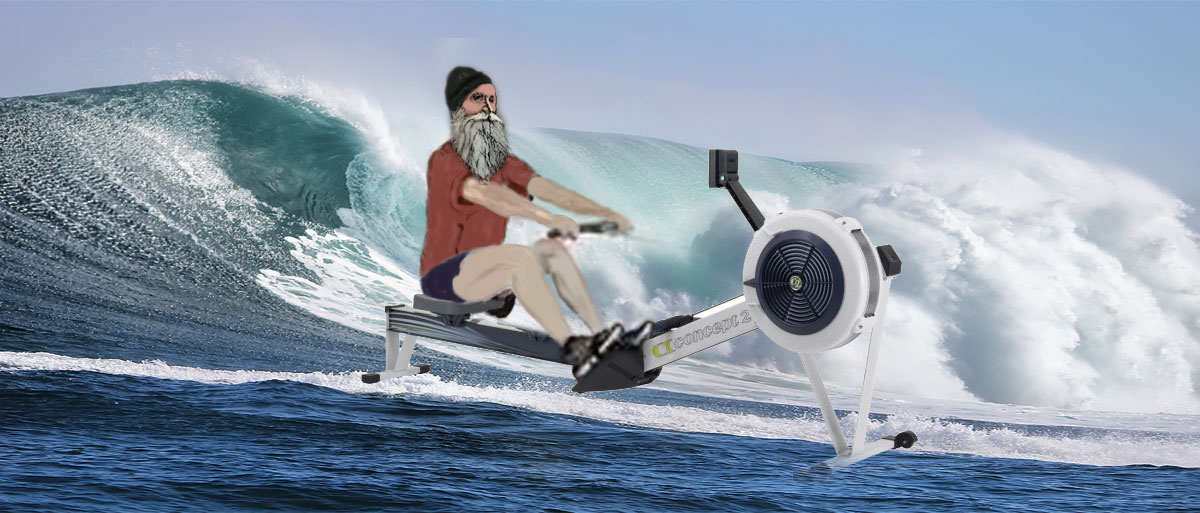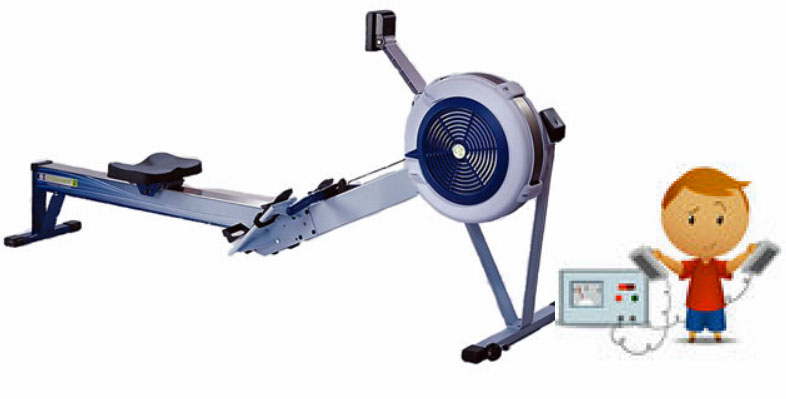
Defibrillation has a few definitions but what they all have in common is that they relate to restoring normal heart behavior by stopping the fibrillation of the heart. If you’ve ever seen a fish flopping around out of water, that’s a good analogy for heart fibrillation.
Every time my heart goes into its floppy-fish mode it is annoying. It’s worse than annoying if it happens after bedtime at night. That’s what happened yesterday evening. It continued all night and caused sleep loss. It was still happening this morning after I gave up trying to get any more sleep and got up for the day.
For the sake of possibly benefiting the heart and its mitochondria, I decided to start today’s workouts early in the morning, before having any breakfast or coffee.
I decided to divide the day’s workouts into smaller than usual increments, to arrive at the same desired goal of time on SkiErg and rowing machine.
Because the SkiErg session of 200 Calories is the shortest of my usual workouts, I did that one first. One nice thing about the SkiErg is that I don’t have to bother with shoes or socks. It can be done barefoot as easily as with shoes on. Somehow, using the SkiErg barefoot seems to make the experience seem more like play than work.
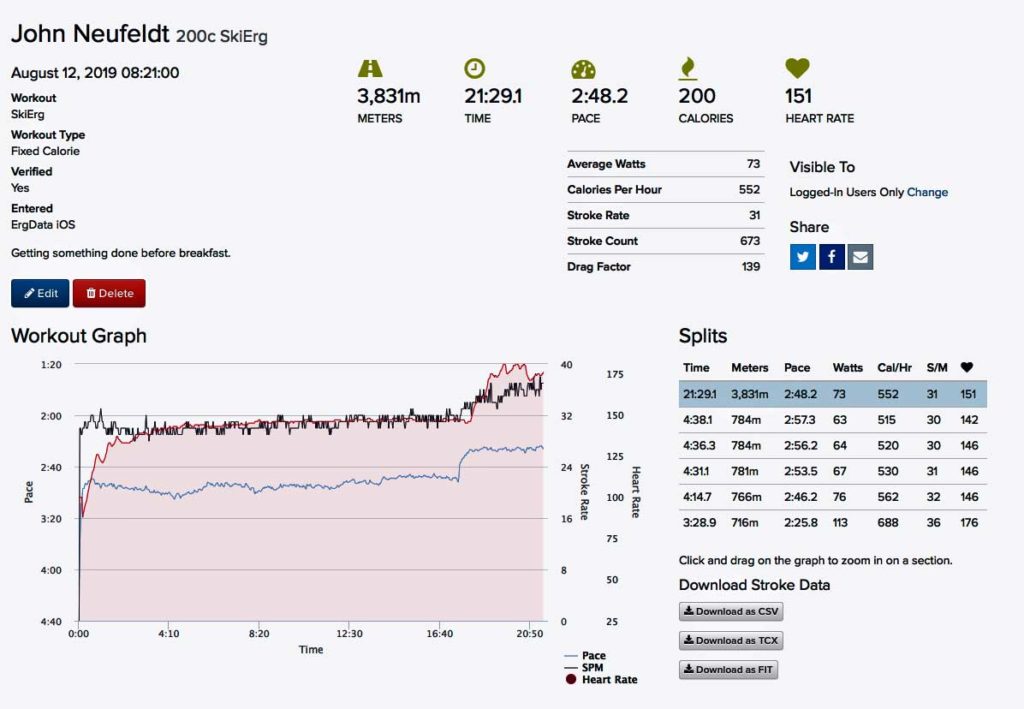
The first workout was 200 Calories on the SkiErg. Heart rate was too high and felt irregular throughout that session. I felt low-energy and went very slow, averaging about 2:48 for the session.
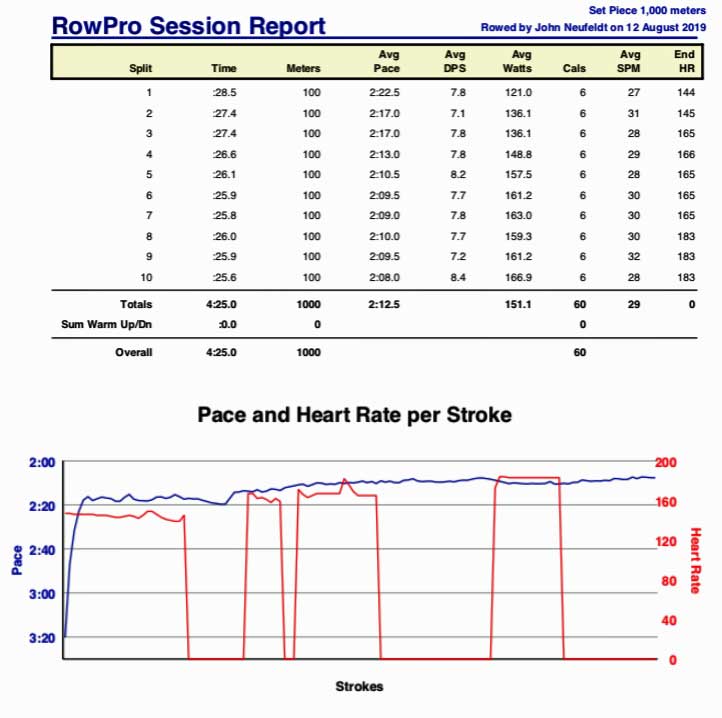
The next workout was on the rowing machine. The goal was 10,000 meters total, by doing ten sessions of 1,000 meters each. For the first 1,000 meter rowing session (see image above) I didn’t pay any attention to pace and just focused on continuing to row. Heart rhythm was very irregular and disappeared from the RowPro quite a bit of the time. Heart rate was abnormally high – much too high for duration and effort level. It was done at an average pace of 2:12.5/500 meters.
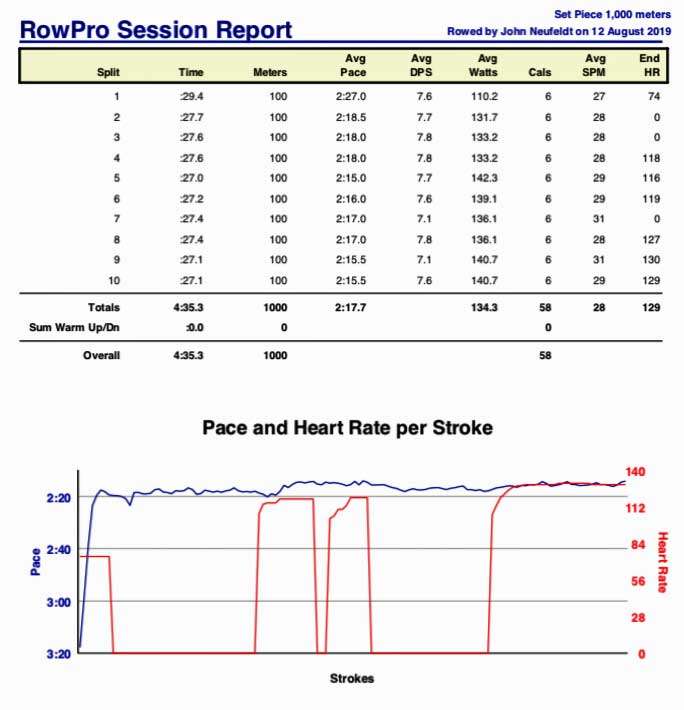
After the first 1,000 meter session I took a break and got the Mr. Coffee busy making a pot of coffee. While coffee was brewing, I rowed the 2nd 1,000 meter session (see image above). Heart rhythm continued to be very irregular, but heart rate was in the normal range for the duration and effort level. I only focused on continuing to row and it was done more slowly than the first at an average pace of 2:17.7/500 meters.
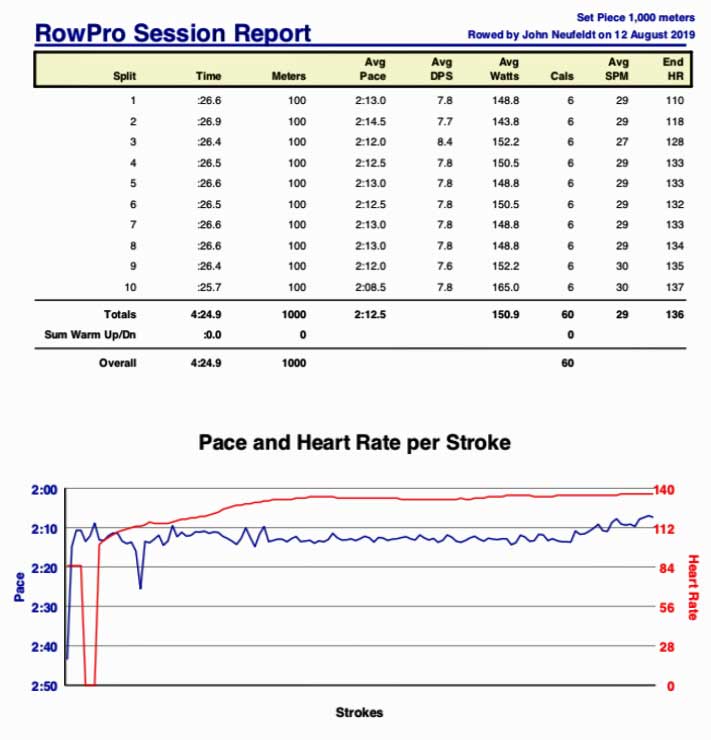
When I sat to row the third 1,000 meters (see image above) I decided to not only focus on simply rowing the distance, but also to do the session at a pace equal to or faster than the first 1K. It was done at an average pace of 2:12.5, like the first 1K of the day. Heart rhythm was irregular at the beginning, but smoothed out during the first 100 meters and had normal rhythm for the rest of the piece. Heart rate was a little bit too high but almost normal for the duration and effort level.
For the 4th through 10th 1,000 meter sessions, each was fractionally faster than the previous, except for the 10th. Heart rhythm and rate was normal during all of those rowing sessions from the 4th through the 10th of 10.
The 10th 1,000 meter session was done at a bit faster pace of 2:07.9, to see if it would trigger irregular heart activity but it didn’t seem to trigger anything out of the ordinary. It also had normal rhythm and rate.
Therefore I conclude that the workout sessions on the ergs were somehow helpful in defibrillation of the irregularities of heart rhythm.
Screenshots of reports & data for the 4th through 10th of ten 1,000 meter rowing sessions are below this paragraph.
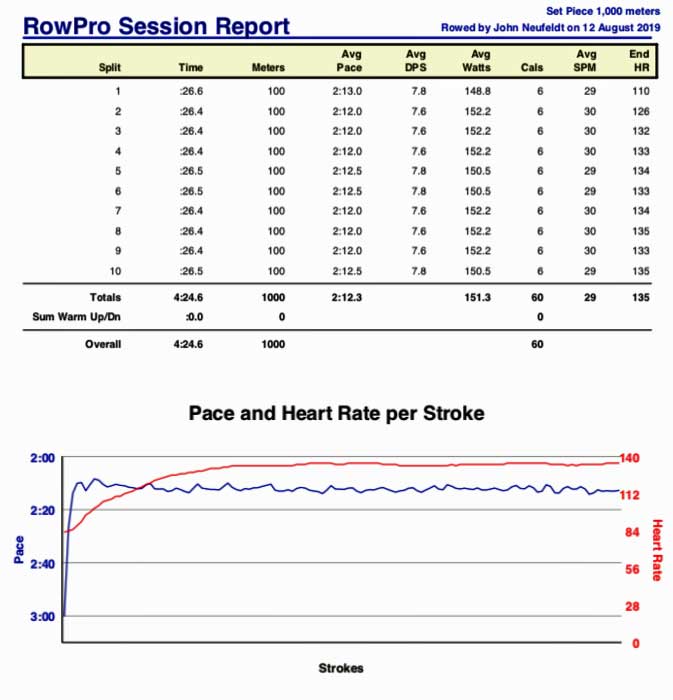
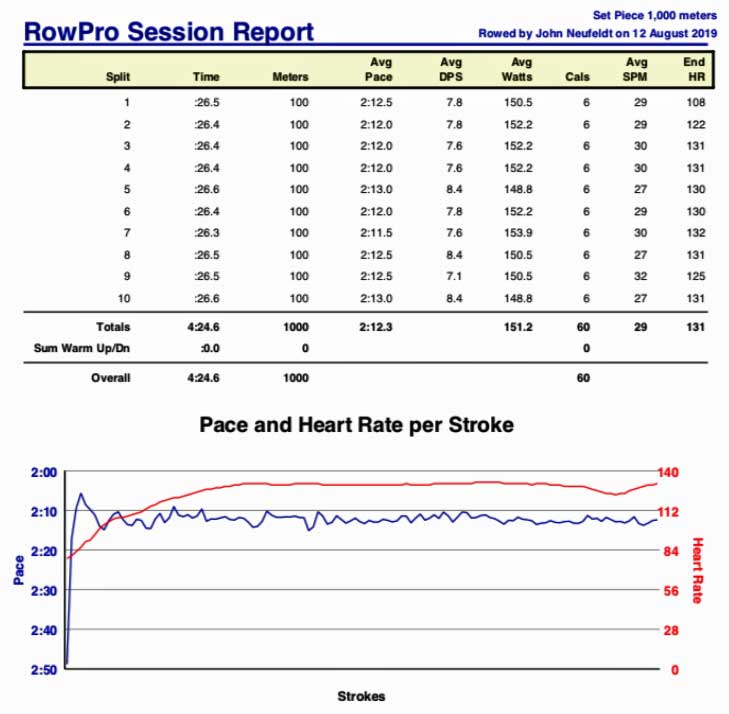
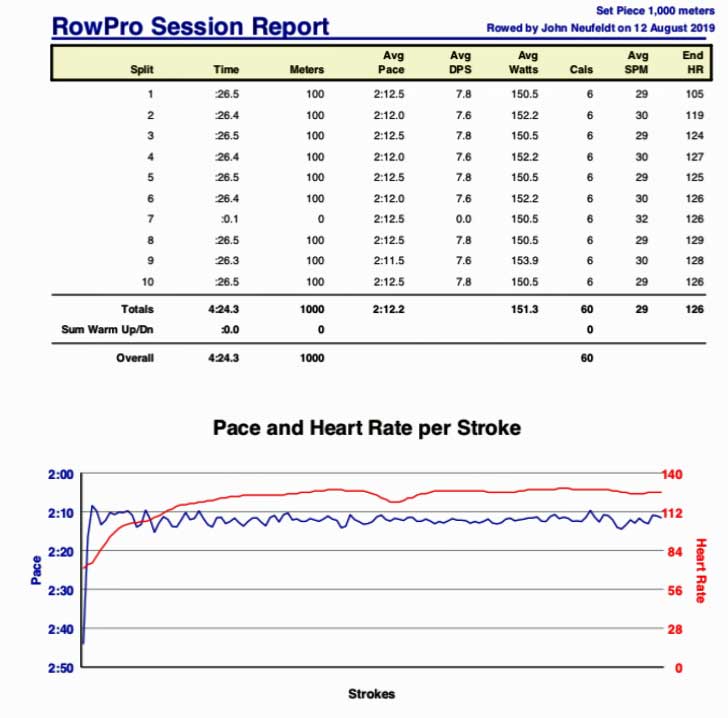
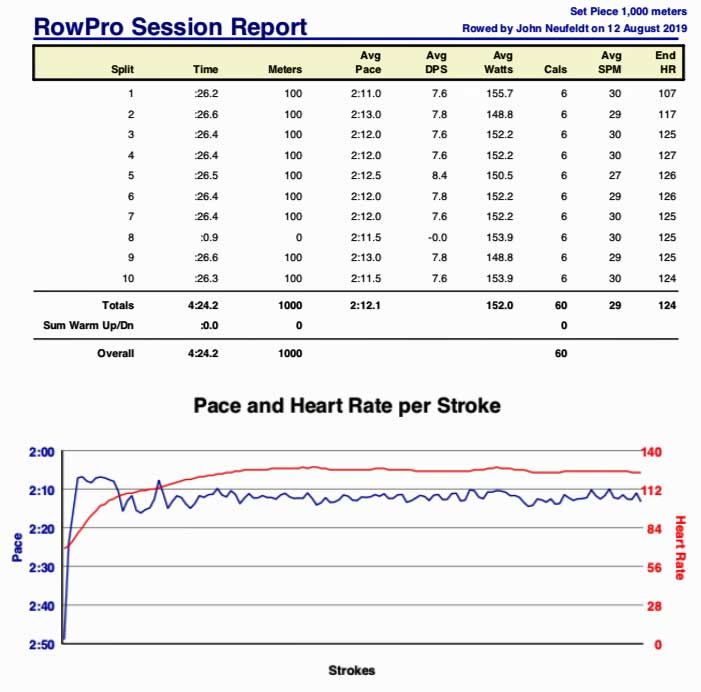
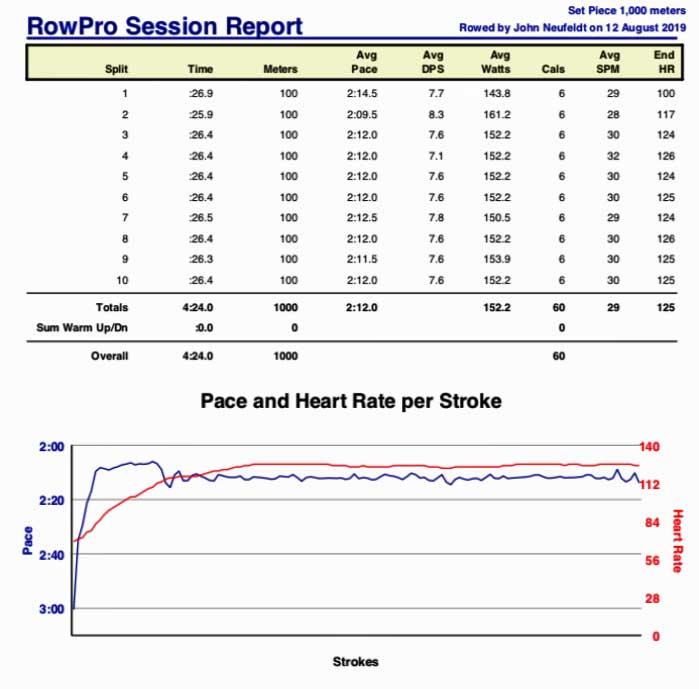
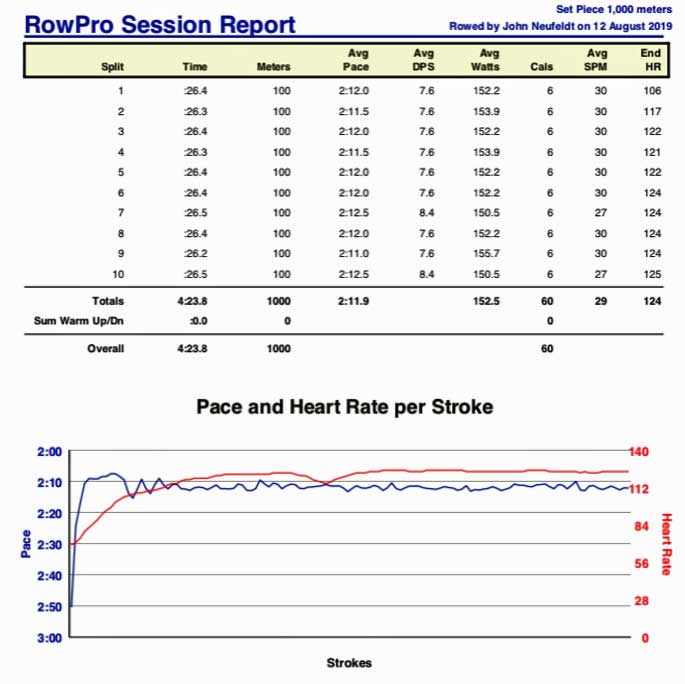
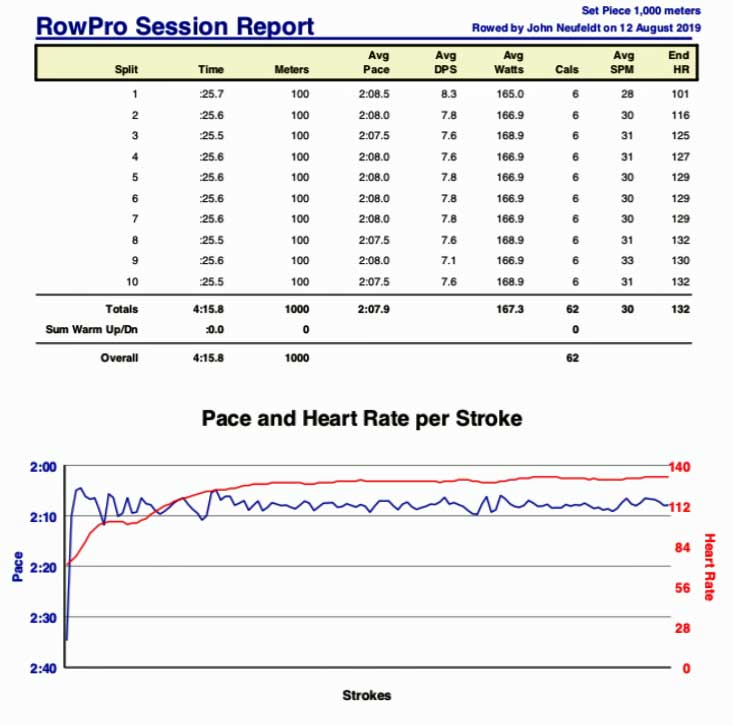
Happy rowing to you!
